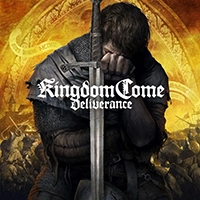

In today’s gaming landscape, any game less than extraordinary gets buried underneath the award winners. That doesn’t mean the overshadowed games do not deserve some spotlight. Every game has a story to tell and an experience to deliver. Let’s check out one so-called mediocre game, the JRPG, Trinity Trigger.
Long ago, the world of Trinitia was caught in the crossfire of a war between the gods of Order and the gods of Chaos. Their giant weapons, called Armas, are now scattered across the land, altering the environment around them in various ways. While humanity thinks the war is something of the distant past, reality can’t be farther from the truth. The conflict has devolved into a proxy war, where the gods of Order and Chaos each select one God Warrior every few years, whose duel will dictate the war’s conclusion. One day, the young scavenger Cyan learns he’s chosen as the Warrior of Chaos, putting a target on his back. Luckily, he is protected by two new friends, Elise (a follower of Harmony) and Zantis (an Oracle of Helios). Together with their Triggers, elemental beings that can transform into weapons, they set out to find the Warrior of Order and end the cycle of destruction.
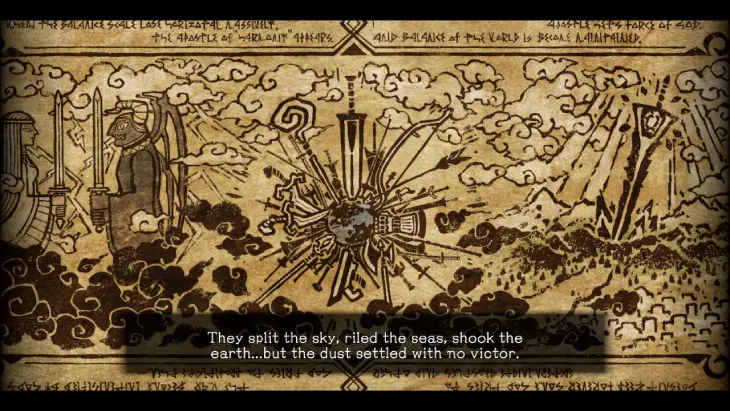
Trinity Trigger has quite an interesting premise, as a world caught in the crossfire of a divine war makes for a world with tons of world-building potential. While the game does touch on some interesting concepts, like the relation between gods and mortals, or the perils of extremes, it never dives too deep into those themes, leaving a shallow experience.
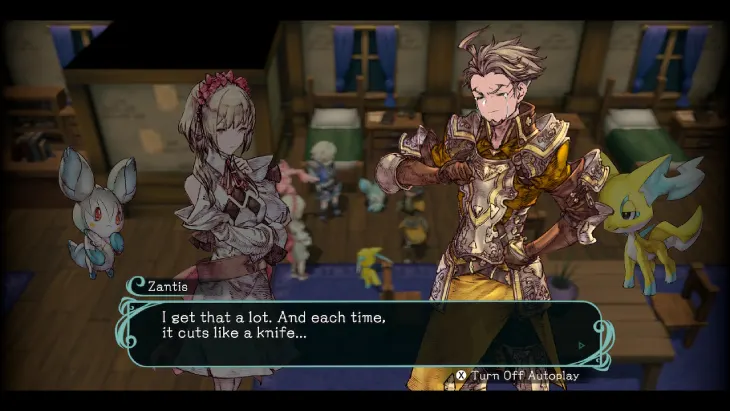
The characters are nothing to write home about either. While the banter between the trio and their Triggers is consistently entertaining, the characters don’t have that much debt. Cyan is almost always a polite protagonist, and Zantis is almost always the butt of every joke. However, there was one big standout in the cast for me, as Elise is easily the highlight. She seems like a delicate maiden, but she has a lot of spunk that makes her stand out. All in all, Trinity Trigger tells an unremarkable story that can still keep many gamers entertained.
Being based on SNES JRPGs of the past, Trinity Trigger will surely invoke a familiar feeling. You journey through 2D environments throughout Trinitia, engaging in action combat along the way.
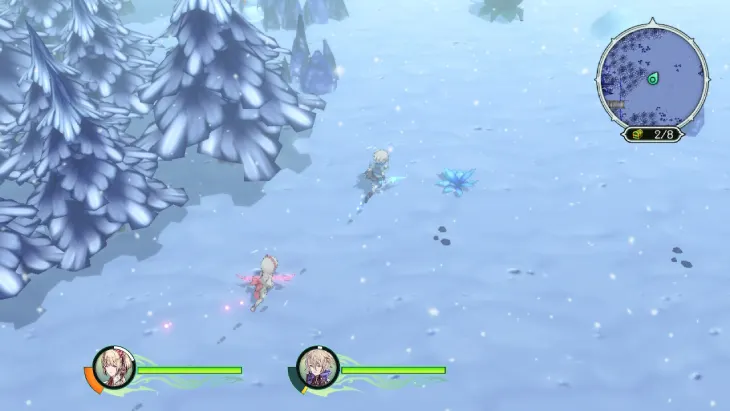
During combat, you play as either Cyan, Elise, or Zantis, and can easily switch between them. You can do your regular normal attacks, but there’s a twist. Every normal attack consumes a part of the Synchro gauge, and if it runs out, your damage is drastically reduced. The Synchro gauge is filled back up over time and through perfect dodges, discouraging mindless button mashing. You can also fill up a Weapon aura, which can be activated when the gauge is filled for a temporary buff. Additionally, when your weapon is glowing, you can fire off a Trigger strike, dealing tons of damage.
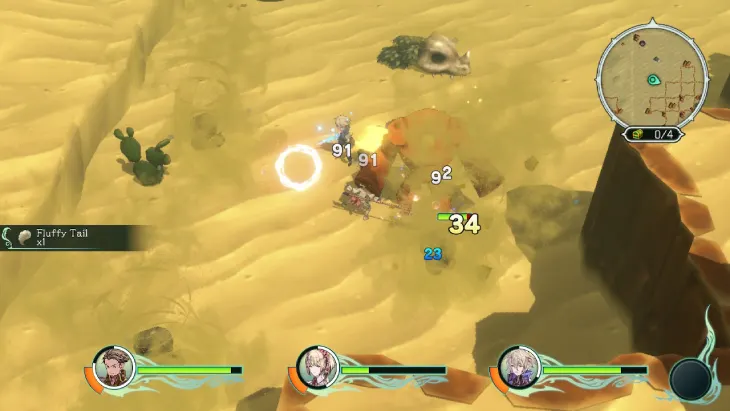
Central to your combat experience are the many different weapons your Triggers can transform into. Between swords, bows, lances, and gauntlets, there are many different playstyles, which can be changed on the fly. Different weapons can be unlocked by visiting the elemental shrines in the Armas, which I’ll cover later. These weapons can also have their attacks upgraded and be equipped with gems, which makes it so you can’t really invest in every weapon for every character. These gems provide a decent variety of effects, like damage, conditional heals, more weapon auras, etc.
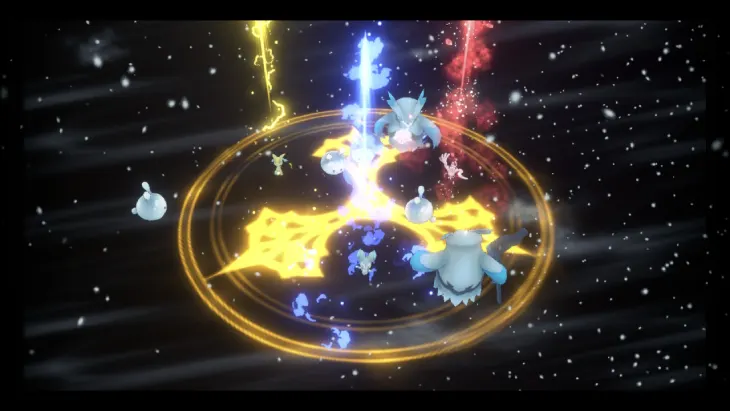
To beat normal enemies, you must deplete their HP as you’d expect, but bosses are a bit different. To damage them, you need to deplete their armor bar first, after which you can unload their health bar. Some bosses are weak to certain weapons, and hitting them with the correct weapon depletes their armor faster. Bosses also often have attacks telegraphed by red markings on the ground, making them easy to dodge. Your AI companions aren’t too smart, but they do consistently dodge those marked attacks. Lastly, you can access your items on the fly, which can heal, cure status effects, and give buffs, but there is a limit to how much of each item you can carry at a time.
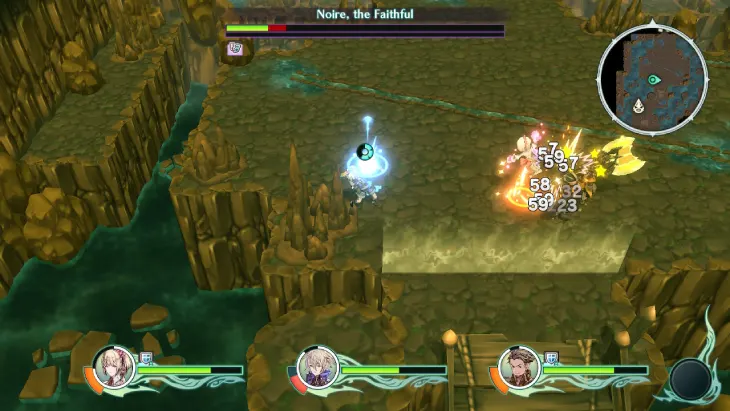
Overall, Trinity Trigger’s combat system has some interesting ideas, and the weapon variety does prevent your playthrough from feeling stale, but I doubt it’s sufficient to stay engaging for the long run.
The giant weapons of the gods, the Armas, will serve as your main dungeons in Trinity Trigger. These all have multiple floors filled with enemies, puzzles, and treasures. One particular treasure you’ll want to look out for is the elemental shrines. These give the Trigger corresponding with the shrine’s element the ability to transform into a weapon based on the Arma. Every Arma is visited during the main story, but for some shrines, you need to go back during a side quest. Aside from these titanic weapons, you’ll also visit a couple of more generic dungeons, like a sewer or cave system.
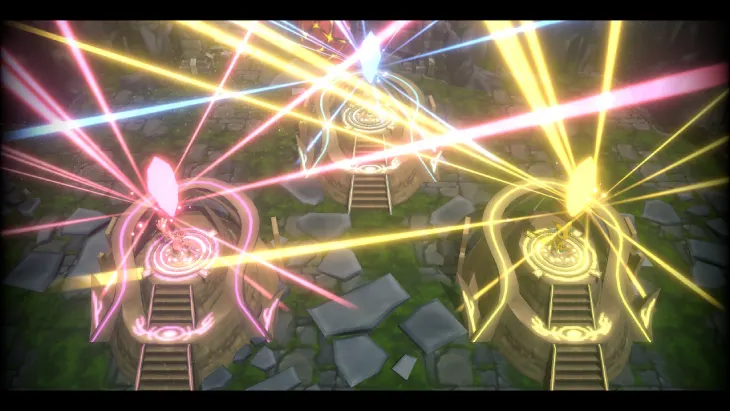
While each Arma does have unique gimmicks, they each have similar architecture, and never really take advantage of their unique theme. All of them have a layout that’s just a tower, whether you’re in the Bow, Axe, or Fist. The Fist does TRY to add a twist, where each finger is a different dungeon, but that just means you have two separate towers instead of one (yes two, you only ever visit the Fist’s Index and Pollex). Another Arma consists of two towers you teleport between. Again, each Arma does have a gimmick, but it doesn’t take advantage of its theme.
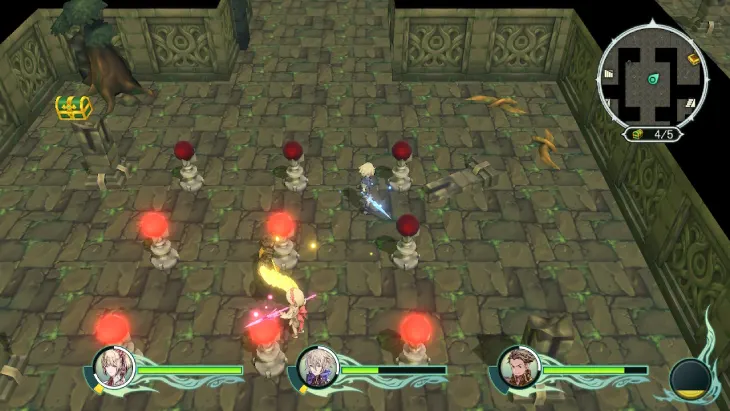
You barely even see the exterior of the Armas either, in the overworld they all consist of generic dungeon entrances due to the limitation of the top-down perspective. Luckily, there is gorgeous 2D art available for all the Armas, showing their form, scale, and how they affect the environment. Some are shown during the story, while for others you need to talk to an NPC to view them and learn how each Arma affects the environment.
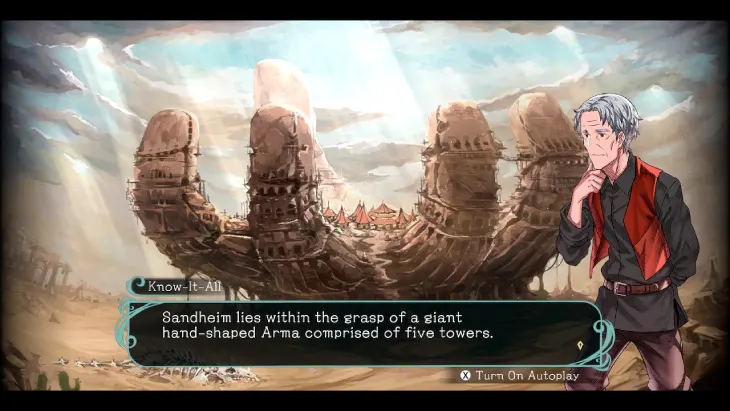
For the most part, Trinity Trigger is well-balanced. I did have one boss in the early game which felt like a damaged sponge, but after that progression felt smooth. That is, until the game’s ending. I won’t talk about story specifics, but I will talk about how the finale felt to play, so if you want to avoid that, skip to the next chapter.
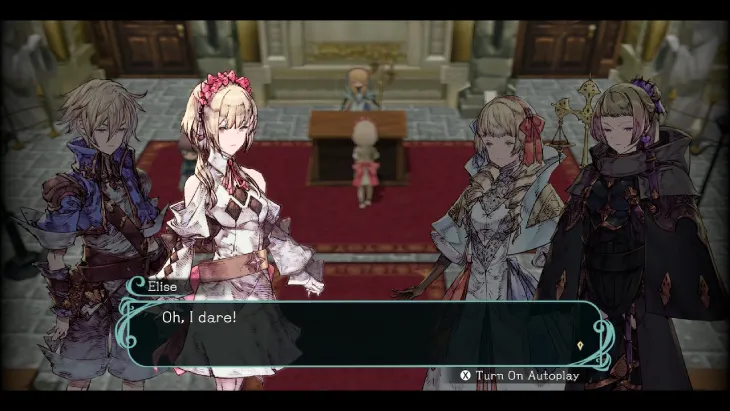
I am not talking hyperbole when I say that Trinity Trigger has the worst final boss of every game I’ve ever played. The final dungeon felt fine to play, up until one boss fight that took ages and had me spend every healing item I had. Unfortunately, the final boss was even worse. Not only did it have an insane amount of health and armor, its attacks were incredibly frustrating. It keeps summoning canons, forcing you to dodge non-stop, and one attack has lingering effects your AI teammates constantly run into, forcing you to either fight alone or spend tons of healing items to bring them back.
Luckily, this game has one accessibility tool: if you retry a boss fight, the boss starts the battle with 20% less max armor. Combined with me having all my characters use ranged weapons with healing abilities, I finally managed to beat it, but it still took me 24 minutes. I could rant more about this fight, but you should experience it yourself, even if I don’t recommend fighting that boss at the highest difficulty. It’s still a horrible difficulty spike.
If you want to take a break from the story, there are quite many side quests to tackle. For starters, some unlock new areas in Armas you already visited, giving you access to new loot and, more importantly, new shrines. Most quests have you do activities in the various regions and towns, and the writing on these is not too shabby either. One has you break a cycle of sacrifice, another has you give eye drops to a grandpa so he can read to his grandson.
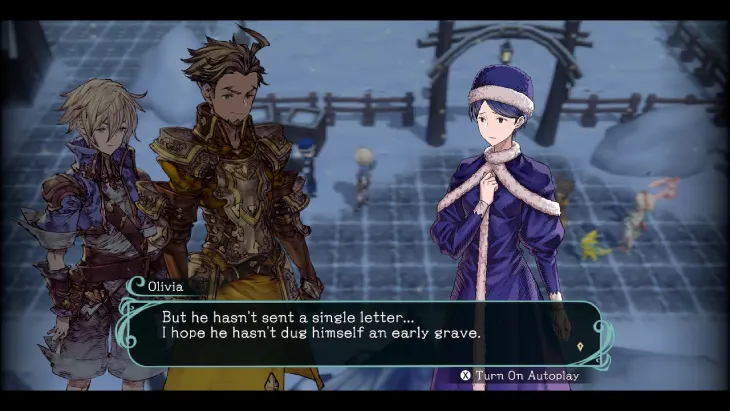
Trinity Trigger pays homage to classic SNES RPGs but uses 3D graphics instead. The 3D graphics are fine in gameplay, but they don’t look too well when it’s zoomed in for a cutscene. The 2D sprites do look great, and they have this unique pencil-like style to them. This style even applies to the animated cutscenes, though they are few and far between. One noticeable part of those scenes is that they are not lip-synced at all with the English dub, making them a bit jarring. Speaking of, Trinity Trigger has a great cast with a variety of notable English voice actors, who all deliver great performances to make the characters more likable. Lastly, the game boasts some pretty good music tracks to get you hyped.
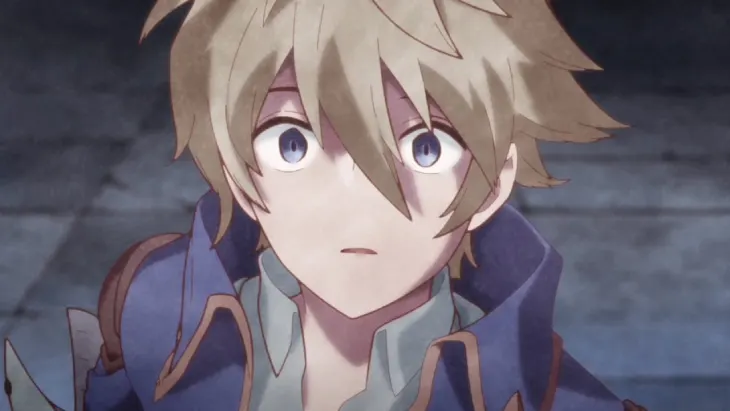
Not every game needs to be a masterpiece, and Trinity Trigger has its own charm. As one of the many JRPGs on the Nintendo Switch, it doesn’t do anything to stand out. Its setting is interesting but doesn’t expand as much on its themes. The combat is pretty fun but lacks the depth to make it unique. Thanks to all of this, Trinity Trigger doesn’t succeed in carving its own niche, and risks being forgotten. Luckily, the game doesn’t have any major problems, right until you reach its ending thanks to its horrible final boss, which soured my opinion of the game a bit. Apart from that, Trinity Trigger is still a fun experience I’m happy to have played.
Trinity Trigger gets a 6/10.